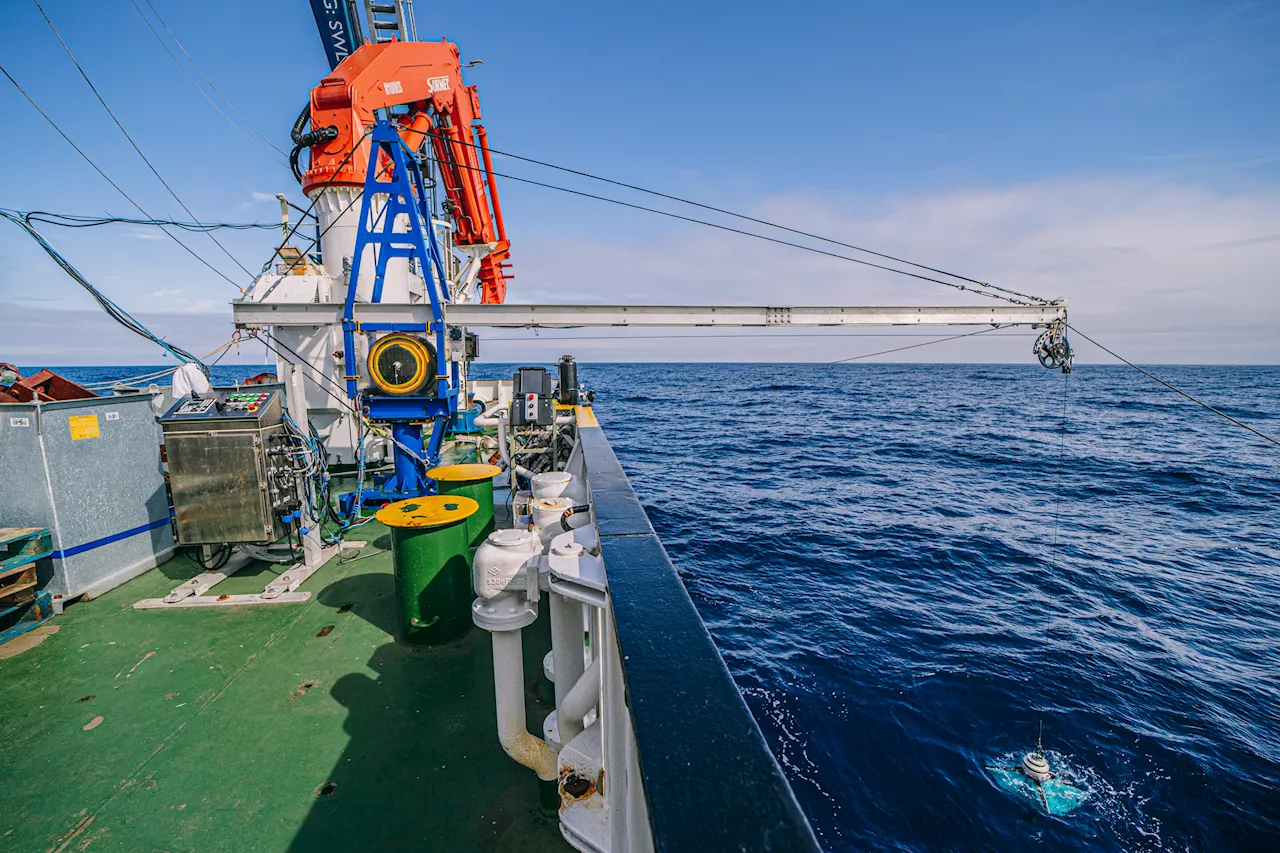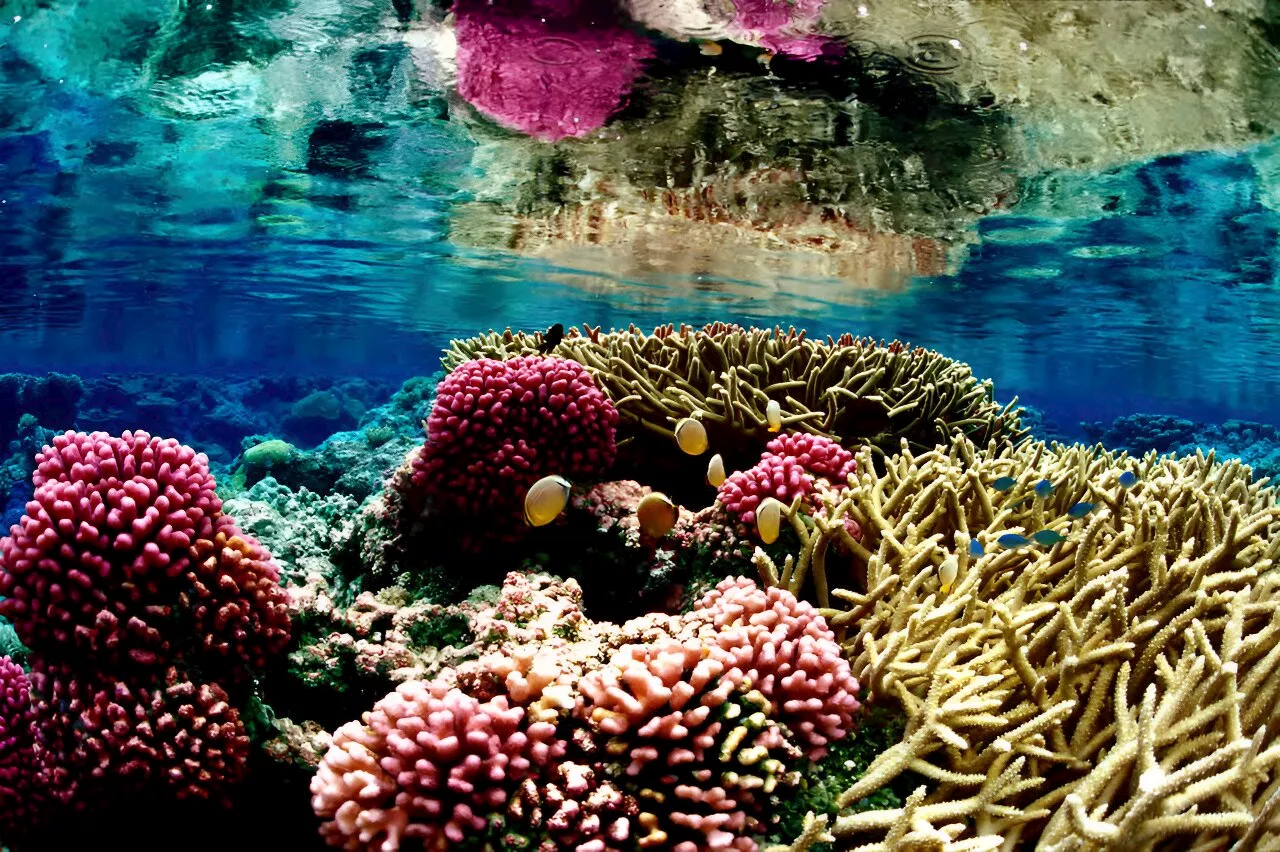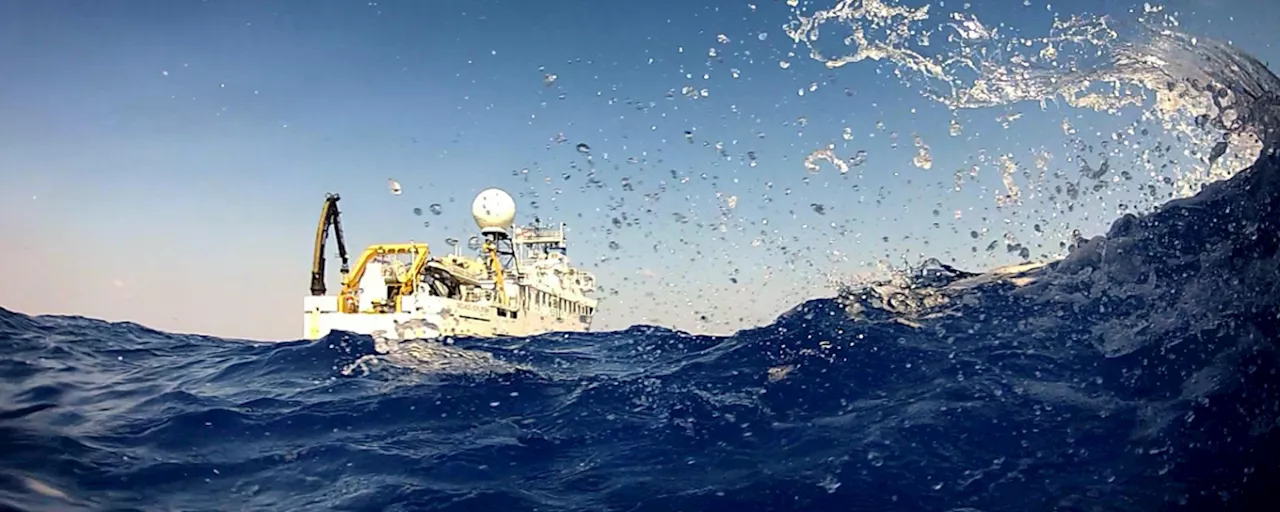Researchers have found a chemical clue in Italian limestone that explains a mass extinction of marine life in the Early Jurassic period, 183 million years ago. Volcanic activity pumped out CO2, warming oceans and lowering their oxygen levels. The findings may foretell the impact climate change and oxygen depletion might have on today's oceans.
Researchers have found a chemical clue in Italian limestone that explains a mass extinction of marine life in the Early Jurassic period, 183 million years ago. Volcanic activity pumped out CO2, warming oceans and lowering their oxygen levels. The findings may foretell the impact climate change and oxygen depletion might have on today's oceans.
During the Jurassic Period, when marine reptiles like ichthyosaurs and plesiosaurs thrived, volcanic activity in modern South Africa released an estimated 20,500 gigatons of carbon dioxide over 500,000 years. This heated the oceans, causing them to lose oxygen.
But Kipp said that today's rapid rate of atmospheric CO2 release is unprecedented in history, making it hard to predict when another mass extinction might occur or how severe it might be.
Marine Biology Nature Global Warming Environmental Awareness Climate Early Climate Dinosaurs Origin Of Life
United States Latest News, United States Headlines
Similar News:You can also read news stories similar to this one that we have collected from other news sources.
 Jurassic World 4 Story Update Teases Return To Jurassic Park RootsSam Neill as Alan Grant in Jurassic World Dominion
Jurassic World 4 Story Update Teases Return To Jurassic Park RootsSam Neill as Alan Grant in Jurassic World Dominion
Read more »
 Researchers address ocean paradox with 55 gallons of fluorescent dyeFor the first time, researchers from UC San Diego's Scripps Institution of Oceanography led an international team that directly measured cold, deep water upwelling via turbulent mixing along the slope of a submarine canyon in the Atlantic Ocean.
Researchers address ocean paradox with 55 gallons of fluorescent dyeFor the first time, researchers from UC San Diego's Scripps Institution of Oceanography led an international team that directly measured cold, deep water upwelling via turbulent mixing along the slope of a submarine canyon in the Atlantic Ocean.
Read more »
 'Life in the ocean touches everyone': US rolls out first national ocean biodiversity strategyRoughly 2 million species live in the world's oceans. But scientists have only described a mere 10% of them. With extinctions on the rise and biodiversity threatened worldwide, many species are in danger of vanishing before researchers can identify them or fully grasp the benefits they provide.
'Life in the ocean touches everyone': US rolls out first national ocean biodiversity strategyRoughly 2 million species live in the world's oceans. But scientists have only described a mere 10% of them. With extinctions on the rise and biodiversity threatened worldwide, many species are in danger of vanishing before researchers can identify them or fully grasp the benefits they provide.
Read more »
 Ocean Month: Discovering our ocean through monitoring, observation, and explorationOceanic and Atmospheric Research (OAR) - or NOAA Research - provides the research foundation for understanding the complex systems that support our planet.
Ocean Month: Discovering our ocean through monitoring, observation, and explorationOceanic and Atmospheric Research (OAR) - or NOAA Research - provides the research foundation for understanding the complex systems that support our planet.
Read more »
 pyParaOcean, A System for Visual Analysis of Ocean Data: Ocean dataIn this paper, researchers introduce pyParaOcean, enhancing ocean data visualization in Paraview for dynamic process tracking and event detection.
pyParaOcean, A System for Visual Analysis of Ocean Data: Ocean dataIn this paper, researchers introduce pyParaOcean, enhancing ocean data visualization in Paraview for dynamic process tracking and event detection.
Read more »
 Eight Ways to Support Marine Sanctuaries During National Ocean MonthThe theme of this year’s National Ocean Day on June 8 is “Catalyzing Action for our Ocean and Climate.” Earth’s climate and the ocean are inextricably linked, and the health of each depends on the other. Throughout the month of June, young people across the globe are working together to advocate for a healthy ocean.
Eight Ways to Support Marine Sanctuaries During National Ocean MonthThe theme of this year’s National Ocean Day on June 8 is “Catalyzing Action for our Ocean and Climate.” Earth’s climate and the ocean are inextricably linked, and the health of each depends on the other. Throughout the month of June, young people across the globe are working together to advocate for a healthy ocean.
Read more »
